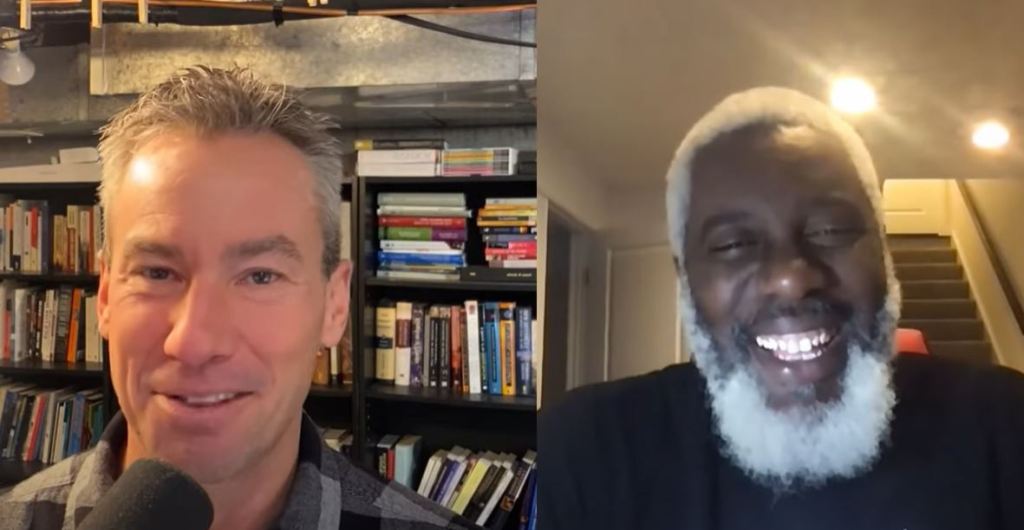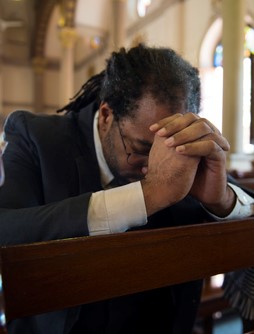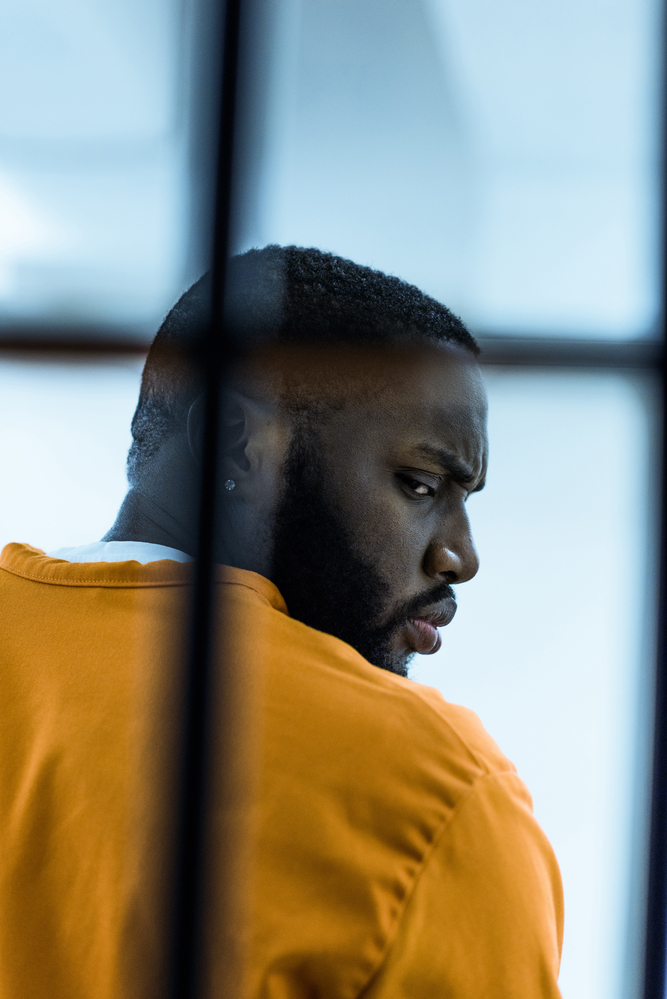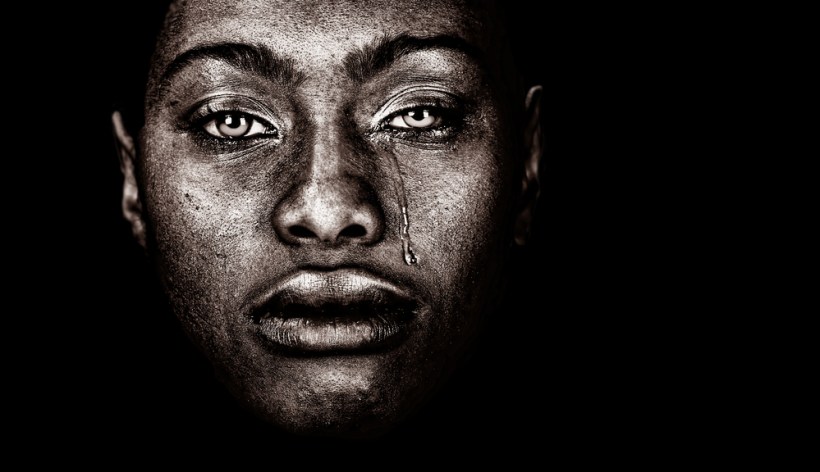
Critical Race Theory (CRT) has caused quite a stir in Christian (and conservative) circles, while racial tensions remain inflamed in the United States after a summer of COVID fear and racial unrest. While we are currently in a period of relative calm, it seems like the volcanic activity continues churning under the surface, and it’s only a matter of time before that tension erupts again after another callous killing.
Since last summer, I have focused often on issues of race in my writing, and race continues to occupy my mind. Thus, when a friend recommended some episodes from Theology in the Raw on the subject of CRT and race, generally, I listened to them. I was thrilled to find the discussions civil, intelligent and enlightening.
I have listened to several episodes now, but the one I am writing about today is episode #844. I am going to summarize parts of it with my own comments, but I highly suggest listening to the whole discussion if you have the time and inclination.
In this podcast, Preston Sprinkle’s guest, “Pastor T”, explains some of the frustrations that black people have with white people (conservative and progressive) in the conversation about race. Pastor T explains that the black Church is more aligned with conservatives on theological lines, but they tend toward progressives on political lines because of silence and lack of engagement with black plight in America by white evangelicals.
Take a moment to listen to Pastor T explain (at approximately 24 minutes in):
I will pick up the conversation in the context of the reasons why Christians oppose CRT. Pastor T identifies at least three (3) areas of concern expressed by some Christians: 1) it leads people away from the Gospel and causes people to deconvert; 2) it is a false religion that threatens Christianity; and 3) it is a progressive ideology that threatens conservative values and democracy.
The first group of people oppose CRT because they see CRT drawing people away from the church, away from Christianity and away from the Gospel. They see people “deconstructing” and leaving their faith. They believe that CRT is to blame, at least in part.
A slightly different reason that people oppose CRT is a concern that CRT is a false gospel advocated with religious zeal usurping real religious zeal in the truth of the Gospel. This is objection is a worldview concern – opposition to a competing worldview.
This view sees CRT as racializing the world because CRT divides the world into oppressor groups and oppressed groups. It posits that people in the oppressor group can never be justified; and the people in the oppressed group are justified simply by virtue of their grievances. These are secular constructs, not biblical ones.
The third group of people might use the language of theology, but their focus is more political. They say that CRT is not good for society, democracy, or the country. They oppose the Black Lives Matter movement and the movement to defund the police, for instance, as unwise, unhelpful, destructive, and (also) contrary to the Bible.
Pastor T began the discussion by acknowledging the legitimacy of these concerns. He affirms that we should be concerned about rival claims to salvation and eternal life and the basic teaching of the Gospel.
Pastor T is a conservative Christian, as are many black Christians in their theology. His observations suggest that we are separated more by race than by theology in the American Church. Perhaps, the disconnect between the black Church and the white Church over CRT in America has more to do with racial experience and perspective than the Gospel. That is becoming more evident to me as time as goes on.

Pastor T sees nothing inherent in CRT that should trigger concern for Christians more than any other threat to faith and Christianity. He sees an equal or greater threat to the faith and to Christianity in the largely white opposition to CRT, because it ignores and marginalizes racial concerns. These are matters of justice, and justice is central to who God is.
He suggests that CRT is more of a bogeyman than a real threat to the Gospel, and a greater threat to the Gospel is the failure and refusal of the white evangelical Church to enter into a productive conversation on racism. He suggests that CRT has become a scapegoat, and Christian opposition to CRT has only masked and exasperated the real problem.
Many conversations among Christians lack a nuanced understanding of CRT. Most people don’t really know what CRT is (Christian and non-Christian). Me included. I have been purposeful in trying to become more knowledgeable, but gaining knowledge and understanding takes time and effort.
Becoming informed requires a willingness to listen and to be thoughtful. It requires checking my presumptions at the door and listing to people I don’t think I agree with. It requires careful, thoughtful analysis of CRT and my gut reactions to it, including my perceptions of it that largely come from what other people say.
We don’t do ourselves and our purposes any favors when we build up strawmen and knock them down. We might as well be tilting at windmills for all that accomplishes.
We also cannot allow ourselves to swept along by the popular current that influences us without ever being critical of that current of thought that we prefer. It shouldn’t be about personal preferences, comfort, and familiarity. We serve the God of the universe, not a god of our own choosing – if we want to worship God in spirit and truth.
Preston Sprinkle maintains that people who think CRT is a monolithic, singular structure don’t understand it. CRT isn’t a worldview in and of itself, though it has been used by people in the promotion of certain worldviews.
Pastor T argues that CRT isn’t necessarily an enemy to Christianity, though it can used as one. It can be used to promote worldviews and outcomes that are not biblical and which are antithetical to the Gospel. But that is true of many things.
Even good things can be antithetical to the Gospel if we make them “ultimate things” (idols), as Tim Keller likes to say. Money isn’t the root of all evil, as many mistakenly say; “the love of money is the root of all evil”. (1 Timothy 6:10) Money is neutral in and of itself, and it can (and many times is) used rightly in service of the Gospel. CRT is in the same category.

Pastor T challenges the concern that people are leaving the faith because of CRT. He argues that CRT isn’t the problem that is causing people to abandon Christianity. The real reason people are leaving the Church on the issue of race is because of racism in the Church, itself!
I agree! People see it, and they see the church denying that it exists. They see the hypocrisy in the church, and so they reject the church. This, of course, isn’t a good reason to reject the church because, though all men be liars, yet God is still true! But, I think there is to truth to the statement that more people leave the church because of hypocrisy than CRT.
Pastor T pushes back with a question:
“Are [people] really self-consciously saying, ‘I am now deconstructing my Christian faith … because I read something in CRT’? Or is the trouble really that they have run into racism in [the] church …, and that has caused a negative reaction to the Church and the Gospel?”
CRT might enter into the conversation at some point, but that is because CRT is a tool used for spotting and identifying latent racism. That’s what CRT does: it provides language for identifying the strains of racism that persist under the surface and out of plain sight in the subconscious minds of people, in behaviors and interpersonal relationships, in policies, customs and norms and even in the psyches of people of color – in the ways they view and relate to themselves.
The black community, even in the Church, largely has no issue with CRT because it puts language to what they experience and see in their every day lives. It forces conversations that otherwise don’t happen.
The evangelical demonization of CRT is frustrating to the black Church because evangelicals largely do not take racism seriously enough to offer an alternative to CRT. Worse: the campaign against CRT in certain church circles looks (and probably is to some extent) deflection away from the root problem.
Our black brothers and sisters don’t see CRT as the primary problem. They see racism as the problem, which the evangelical church is not seriously engaging, and which it has never engaged very well on a widespread basis. Pastor T explains it this way:
“In a context where the Church has been historically, overwhelmingly silent about racial inequity, or [participatory] in it and causing it…, there is a huge vacuum there. The problem isn’t CRT as such; the problem is that these folks have had encounters with racism inside the Church where they rightly thought it should not be, and where they rightly thought there should be some help in redressing it. It has been that form of the Christian faith they have been rejecting…., it isn’t CRT’s fault…. When [white] folks joust with CRT and make light of the experience of racism and justice in predominantly white, evangelical circles, they are just compounding the problem…. They are just proving the problem to that person who may be only saying that, since I have had this experience, I need to leave the faith…. CRT becomes the whipping post, but the prior problem is racism in the Church.”
This may be a hard pill to swallow. I can relate to the difficulty of accepting it. I have been a long time coming to accept the reality in this criticism.
I would like to think we can go on with our American ways without having to stop and tend to our black brothers and sisters lying, beat up and left for dead in the road, but I hear God’s call to the Good Samaritan in me. I no longer think we can cross to the other side.
As for the second group, who say that CRT is a religion that needs to be rejected, Pastor T says that most people who write and talk about CRT are attacking a caricature of CRT. They may not really understand it, and some may even intentionally mischaracterize it.
The bigger and more important observation, though, is this: most people talking about CRT are not putting forward constructive agendas or proposals to deal with the actual racism that persists.
“They are sliding over [actual racism] and focusing on the position of what they are against.”

I believe he is exactly right! Even if people are right in their critiques of CRT, the focus on CRT – with little effort or no effort to work on solutions to actual racism – allows racism to go unaddressed. It perpetuates and exasperates the problem. If CRT is used by people who are devoted to stopping the injustice of racism (demeaning the value of all people who God created in His image), we should offer them an alternative within the church!
To the extent that people are opposing a caricature, they are not really even dealing with CRT.
A little history is in order. CRT was conceived in the late 1970’s, not predominantly as a social theory, but as a legal theory. It dealt with the following question:
“How is it that we can have Civil Rights gains (from the Voting Rights Act and Brown v. Board of Education, etc.) and two or three decades later (in the 70’s and 80’s) be suffering such significant Civil Rights losses in the rolling back of those Civil Rights gains….?”
CRT was developed to attempt to answer the question: why do racial disparities continue despite Civil Rights laws intended to end them? CRT was an attempt to forge a tool for exposing continuing racial disparities and the sources of those disparities that persist even after explicit laws that forbid racial discrimination.
Pastor T says that CRT proposes a “different set of spectacles” with which to view the law. The law created the construct of race itself. Racism is not just a social problem, it is also a legal problem – not just the explicit, old laws that were openly racist (favoring “whites only”), but also in the operation of facially race-neutral laws that produce racial disparities, intended or unintended.
Thus, one premise of CRT is that “[A] law doesn’t have to be Jim Crow racist in its language to have racist effects in its operation.” Another premise is that racism is endemic to the United States. It is embedded into our nation. (This is not to say that other nations are free from similar sins, but our focus is on our country here.)
CRT takes the position that racial prejudice, racial bigotry, racial favoritism, etc., has been baked into every aspect of American society. This isn’t a philosophical construct. It is a fact – the natural outgrowth of three hundred years of slavery, followed by one hundred years of expressly, racially motivated and targeted laws, systems, policies, mores, attitudes, and practices.
Think about it: we only passed civil rights laws to prohibit openly intentional racism in my lifetime!
The default posture should not be to assume that everyone is equal and has a fair shake, at this point, because they aren’t and they don’t. Racism is steeped into the structure of American culture and society, and it persists in ubiquitous ways today despite the Civil Rights laws on the books.

An illustration is the sentencing guidelines for possession of crack cocaine, which was 18 times the length of the sentencing guidelines for powder cocaine. These are racially neutral guidelines, but they uniquely affect black people because black people are more apt to be economically disadvantaged and crack cocaine is cheaper than powder cocaine.
Powder cocaine addiction is treated more like a health problem for which minor penalties and treatment are prescribed, while crack cocaine addiction is treated like a criminal problem to which punishment and prison is applied.
The impact of that disparity in sentencing guidelines has been devastating on the black population. While powder cocaine addicts were given the opportunity to get treatment and return to productive citizenship, crack cocaine addicts were locked away and cut off from productive citizenship.
Another example can be seen with marijuana. Blacks and whites use marijuana at approximately the same rates. The stop, search, arrest, prosecution, and sentencing rates for possession of pot, however, are dramatically disproportionate. At every step in the criminal justice system, from police stops to sentencing, the statistics show the hammer comes down harder on black marijuana users across the board.
There is no law on the books that requires or even encourages disparate treatment for black people. In fact, the laws demand equal treatment on their face, but the facts reveal that black people are treated dramatically differently than white people. The disparate treatment is not evident on the face of the laws, but the outcomes reveal that something else is going on.
Pastor T says, “This is what we talk about when we talk about systemic racism and systemic biases.” These biases play out in the results. These biases are revealed in comparing the statistics. One does not have to be self-consciously racist or to have a racist attitude to be influenced and go along with the “system” and to do what everyone else is doing.
A “system” in this sense might be better identified as a culture – a way of responding and behaving that may not even be a conscious choice. A proponent of CRT would say this is proof that racism is endemic to the country. It is baked into the culture. Unless we take a critical posture in relation to it, we just go along with it, and nothing changes.

CRT tries to get to the roots of that implicit bias, the unspoken assumptions, group think, and collective perceptions that perpetuate racial disparity. It tries to expose these vestiges of racism that would otherwise go unnoticed by those who unwittingly allow it to continue. We don’t even see it in ourselves because it is in the air we breath.
Racism can exist internally, in the attitudes and beliefs of individuals. It can play out interpersonally in our behaviors and the way we treat and relate to people. It can be “institutional”, embedded into cultural and societal norms, policies, customs and ways that people relate to each other. It can also be internalized in the way Black people view themselves and relate to each other.
We can work on racism internally, and that is a necessary start, but addressing our own attitudes and beliefs doesn’t necessarily address institutional racism. To address the institutional level of racism, we need to be intentional (and critical) about the ways in which culture, policies, customs and norms disparately impact people of color. We have to be willing to see and acknowledge the problem in order to redress it.
When we talk about something being “systematic”, we aren’t necessarily talking about explicit purposes and goals, we are talking about a disparate effect that is non-random. “[An] effect is systematic in the sense that it will produce [an] outcome ordinarily, systematically in a non-random fashion.”
CRT, divorced from worldview, is simply a tool for helping to identify the racial disparities that exist and to uncover them for people to see.

For instance, take ten black people, ten Hispanic people and ten white people at random who have had contact with the criminal justice system. If the system of justice is really blind, the set of outcomes should be roughly equal for each of those group sets. Equal outcomes would be expected in a “non-systemic” justice system that is truly random.
If the outcomes disproportionately effect each group in consistent and predictable ways, a sociologist would say that the outcomes are systemic and non-random. This is a sociological definition of systemic.
This is what we see in the comparison of white and black groups of people: we see consistent, predictable and non-random results of disparity. That is what CRT is intended to expose and help people see.
Here is the key: CRT can be used by anyone from any ideological position to help shine a light on areas where racism continues to exist – consciously or subconsciously. It can even be used by Christians who have a Gospel-centered worldview that is informed by the first principles of loving God and loving our neighbors.
Christians “invented” civil rights and individual rights. These things grew uniquely out of the soil of a purposefully Christian nation. The believed reality that all people are made in the image of God is the ultimate equalizer. There is no male nor female, no Jew nor Greek, no slave nor freeman in Christ. We are all equally loved and equally valued.
Rather than listen and respect the voices of our black brothers and sisters, many people have made CRT a bogeyman. Pastor T argues that the CRT dragon may be more myth than reality.
CRT does not drive the progressive agenda. It is just a tool they use, like a hammer. A hammer is just a tool that can be used constructively for its intended purpose. It can also be used destructively, but it isn’t intrinsically bad.
For this reason, Pastor T says there is nothing inherent in CRT that is inimical to Christianity. It has become an evil because Christians have villainized and characterized it as an evil in itself.
I believe the bigger and more inimical issue in the church in the US is that we have largely not taken racial problems seriously enough. In failing to confront the issues that continue to persist, we have abdicated engagement of the racial justice to the secular world. We have been asleep at the wheel.
In my opinion, purposely godless worldviews have taken over discussions of racial justice because the lack of Christian engagement has created a void. Collectively, we have failed to provide a thoughtful response to the racism that our black brothers and sisters experience. We haven’t been listening well enough, We haven’t taken them seriously enough. We haven’t loved them as we would love ourselves well enough.
Justice (and righteousness) is the foundation of God’s throne. (Ps. 89:14) If justice is foundational to God, we should be doing justice. (Micah 6:8) If the Church abandons justice, the world rushes in to supply its own brand of justice.
To the extent that Christians do nothing but oppose CRT, while ignoring the race problem that lives on in our society and even in the Church, Christians are adding fuel to the racial fire. We need to be more thoughtful than that. We need to more discerning than that.
I will finish be recasting one of the tenets of CRT into biblical terms. CRT holds that people, even people of good conscience and sincere motivation, can be racist in subtle ways that they might not realize or even intend. That sounds to me like a secular way of describing sin.
“For I do not understand my own actions. For I do not do what I want, but I do the very thing I hate. Now if I do what I do not want, I agree with the law, that it is good. So now it is no longer I who do it, but sin that dwells within me. For I know that nothing good dwells in me, that is, in my flesh. For I have the desire to do what is right, but not the ability to carry it out. For I do not do the good I want, but the evil I do not want is what I keep on doing.” Romans 7:15-19
We don’t have to buy into cultural Marxism to find some common ground in the concern for racial justice. If we don’t enter the conversation, though, if we don’t engage, if all we do is draw lines in the proverbial sand, we will find ourselves locked into our cloistered halls, having little effect in the world as people leave our churches who see the problem and want to be part of the solution.
We have the ultimate solution! We can offer forgiveness of sins, good news to the poor, freedom to the captives, sight to the blind, and relief to the oppressed. We have redemption to offer, while the cultural Marxism offers only endless cycles of struggle between oppressed and oppressor groups. We have peace to offer, while the world can only offer conflict.
But the world will never see it if we don’t stand up with the Gospel to show the way to the cross in the racial arena. Like God came to us in human form and met us where we are, we need to enter into the conversation where people are. CRT – the tool for identifying easily overlooked racial disparities – is where people are on racism in America.
Perhaps, CRT isn’t the enemy. Perhaps, we are our own enemies on this issue. And even if we have some enemies in this discussion, we are called to love our enemies. Christ died for them too, and His ultimate purpose is to redeem them.
Are we ready to allow God to act within us to will and to act according to His purpose in the racial arena? Then we need to be honest, repent of our sins, and inter in.

CRT is in fact our enemy and has deep ties to socialist and communist ideologies. For this pastor to say otherwise means he does not understand CRT or he is not being honest.
Secondly your assertion of a white church and a black church are harmful. There is only one church. Sadly this is just another example of weakness in the church.
LikeLike
You are right. There is only one church, and it is made up of every tribe, nation and tongue. (Rev. 7:9) But the American church is divided in a number of ways. One of those ways is between black and white. Any secular ism is contrary to the Gospel. Socialism and Marxism are only different secular alternatives to capitalism and conservatism, and, without the Gospel, all of them are “enemies” of the truth. Each one of them lead to destruction with God. The real issue here is sin, the sin of favoritism (See James 2) which is the root of racism. While slavery existed all over the world in every culture, and while Christianity helped to put an end to slavery; a certain form of American Christianity resisted that call to repentance, and a certain form of American Christianity still minimizes and fails to address the significant impact the sin of racism has had on our country. The main takeaway from all that was said in this dialogue is that people turn to CRT because of the void left in American church – a void caused by a failure to take this uniquely American sin seriously enough. If the church doesn’t rise up and face this demon, people will not take the church seriously, and that is what is happening. They will turn to secular solutions, and that is what is happening.
LikeLike